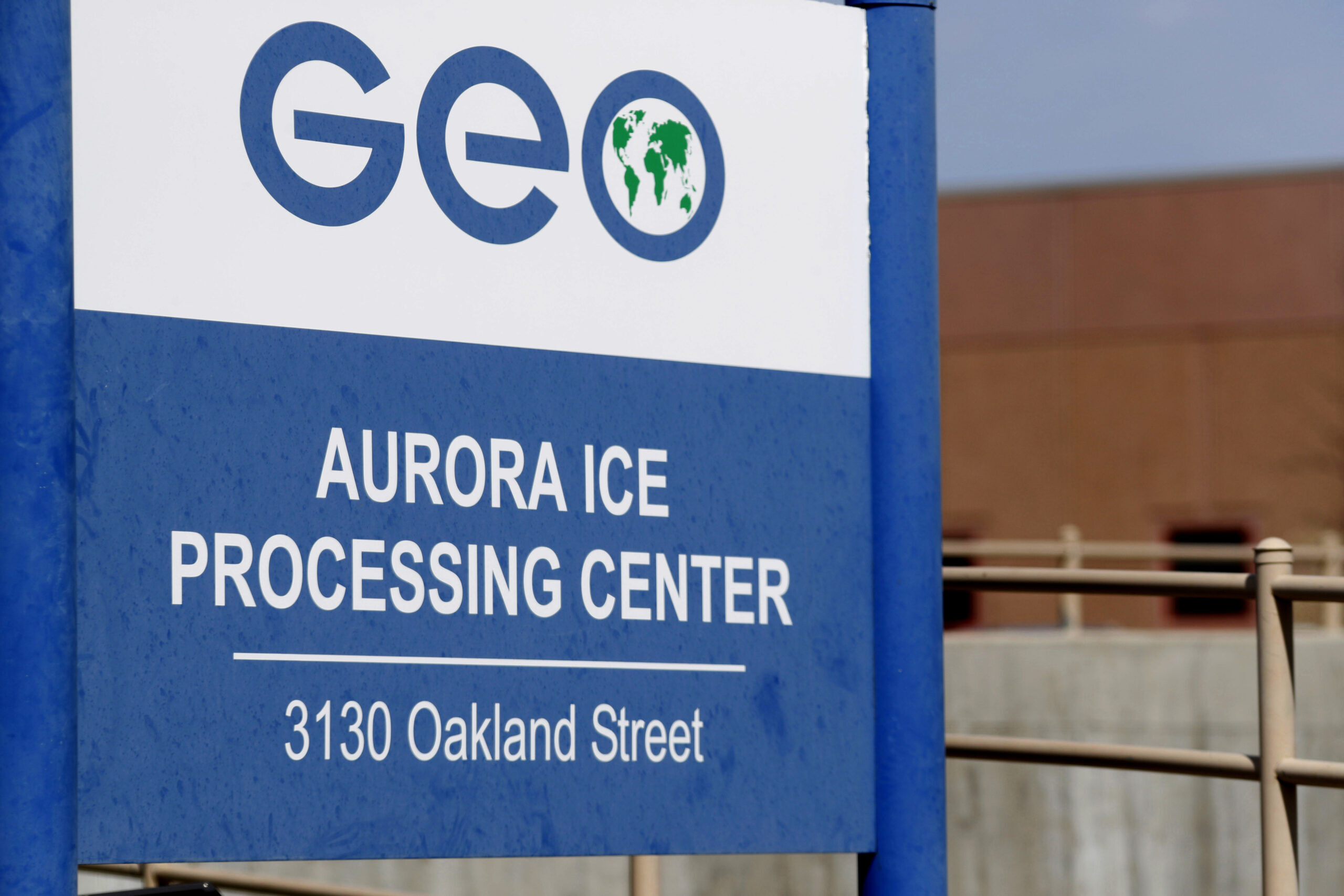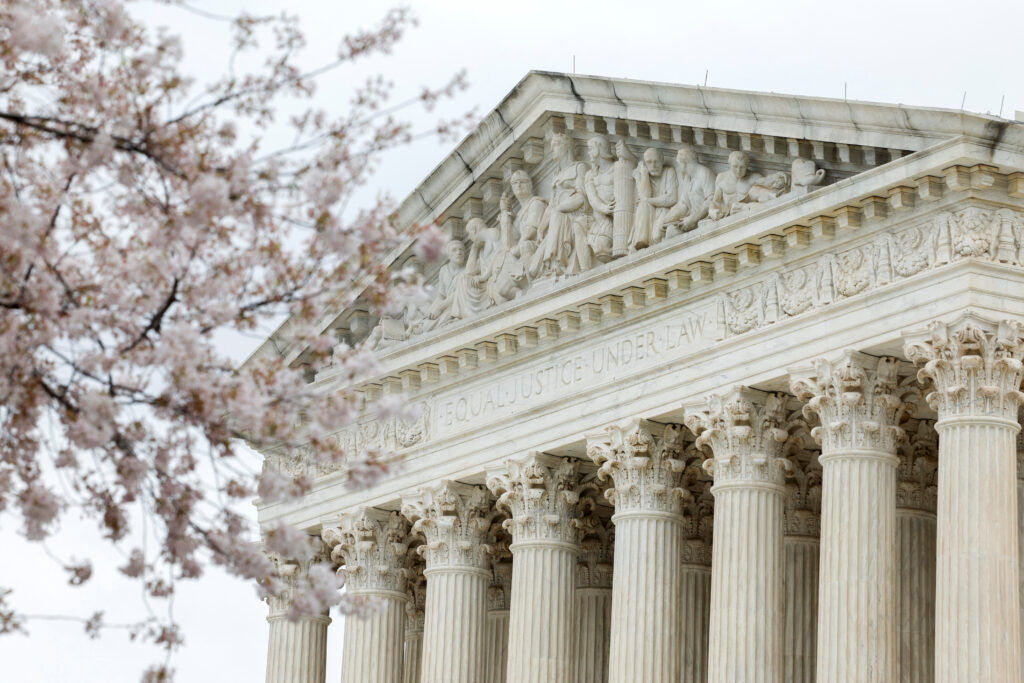A brief overview of The GEO Group v. Menocal, the class action out of Colorado about immigration detention

On Monday, the U.S. Supreme Court heard oral arguments in the case of The GEO Group v. Menocal, which originated in Colorado. The arguments revolved around when appeals courts may review claims by federal contractors that they are immune from suit.
Here are the basic points to know:
What is the lawsuit about?
The plaintiffs are detainees in Aurora’s privately run immigration facility who originally filed suit in 2014. They claimed The GEO Group, which operates the 1,532-bed detention center for U.S. Immigration and Customs Enforcement, violated federal or state law in two ways.
First, the Trafficking Victims Protection Act of 2000 makes it unlawful to knowingly coerce labor out of another person through serious harm or threats of serious harm. Requiring detainees to clean not just their personal space, but the common areas of the detention center under threat of solitary confinement, allegedly ran afoul of that prohibition.
Second, GEO Group’s $1-per-day compensation for inmates in a voluntary work program allegedly amounted to unjust enrichment under Colorado law, with GEO Group unfairly receiving a benefit at the detainees’ expense without properly compensating them.
The class action covers detainees who were in the Aurora facility in the 10 years prior to the lawsuit’s filing.
What has happened so far?
In 2022, U.S. District Court Senior Judge John L. Kane green-lit the case for trial. GEO Group had argued it was entitled to “derivative sovereign immunity,” meaning the government’s general immunity from being sued extends to its contractors. However, Kane noted ICE did not mandate GEO Group to implement the challenged practices, so the private company was not carrying out the government’s commands when it allegedly violated the plaintiffs’ rights.
Then what happened?
GEO Group appealed to the 10th U.S. Circuit Court of Appeals, where a three-judge panel decided it couldn’t review the company’s claimed immunity. The panel determined the question of what the government required GEO Group to do would be at the heart of both the immunity issue and the case itself. Therefore, it wouldn’t be appropriate to answer the immunity question before trial.

What is the Supreme Court going to address?
Eight federal appeals courts have answered this question. Four of them have reached the same conclusion as the 10th Circuit, while three have gone the other way. The Supreme Court will decide whether contractors like GEO Group can immediately appeal decisions on their claimed immunity.
What are other people saying?
Individuals and groups have submitted briefs to the Supreme Court expressing a variety of positions. The American Federation of State, County and Municipal Employees is asking the court to uphold the 10th Circuit’s decision, arguing the justices shouldn’t shield private contractors from liability when they break the law. The U.S. government also wants the court to reach the same outcome as the 10th Circuit, but on the grounds that the question is more appropriate to answer on direct appeal after trial. The U.S. Chamber of Commerce argues the court should recognize the immediate appealability of derivative sovereign immunity decisions.













